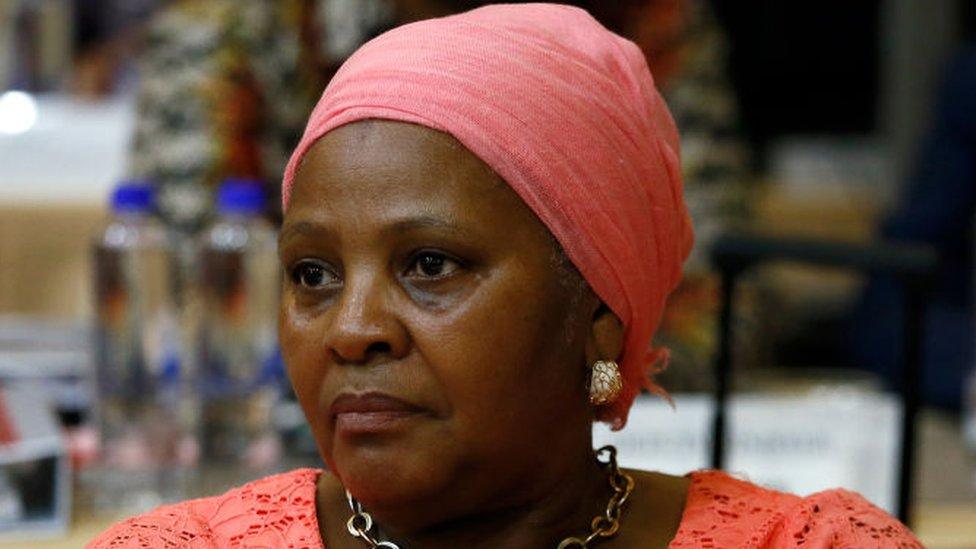Nosiviwe Mapisa-Nqakula: South Africa parliament speaker charged with 12 counts of corruption
- Published

Nosiviwe Mapisa-Nqakula, 67, is a veteran of the anti-apartheid struggle
South Africa's ex-Speaker of Parliament Nosiviwe Mapisa-Nqakula has been charged with 12 counts of corruption and one count of money laundering.
She made her first court appearance after handing herself over to a police station on Thursday morning.
The politician is accused of soliciting bribes in return for awarding contracts during her time as defence minister.
She denied any wrongdoing in court and said: "I do not have a propensity to commit crime."
But prosecutor Bheki Manyathi told Pretoria Magistrates' Court there was "ample evidence" against Ms Mapisa-Nqakula.
She has been released on bail.
After weeks of investigations, Ms Mapisa-Nqakula resigned on Wednesday, but said this wasn't an "indication or admission of guilt".
She said given the "seriousness" of the probe she could not continue her role.
President Cyril Ramaphosa said on Thursday that Ms Mapisa-Nqakula should be commended for taking the decision to resign.
"We should recognise that her level of integrity for our democracy has made her do this," he said.
Last month a special police unit raided her Johannesburg home in connection with the corruption investigation.
The 67-year-old veteran of the African National Congress (ANC) party became speaker in 2021. Before that, she served as defence minister for seven years.
Last week, Ms Mapisa-Nqakula's lawyers filed a request for a court order to prevent her arrest, saying it would infringe on her dignity.
On Tuesday, judges rejected her bid on the basis that the matter was not urgent and they could not speculate on an arrest that was yet to happen.
Ms Mapisa-Nqakula is accused of making several demands for money, amounting to $120,000 (£96,000), from the owner of a company to secure a tender to transport army equipment back to South Africa from elsewhere on the continent, the Business Day newspaper reports.
This is the latest in a long line of corruption scandals to engulf the ANC.
What's unusual about the case is the relative speed with which Ms Mapisa-Nqakula resigned.
Her decision to stand down is likely to have triggered relief in some ANC circles as she has relieved the party of having to publicly defend her.
The ANC has officially commended her decision, saying the party valued her commitment to maintaining the image of the organisation.
The case against the former speaker is at best embarrassing, at worst deeply damaging for the ANC.
Polls predict the party faces a bruising election at the end of May with some projections suggesting it could lose its majority for the first time.
The ANC, which has been in power since 1994, has faced repeated allegations of corruption and mismanagement of public funds, which have become a key election issue.